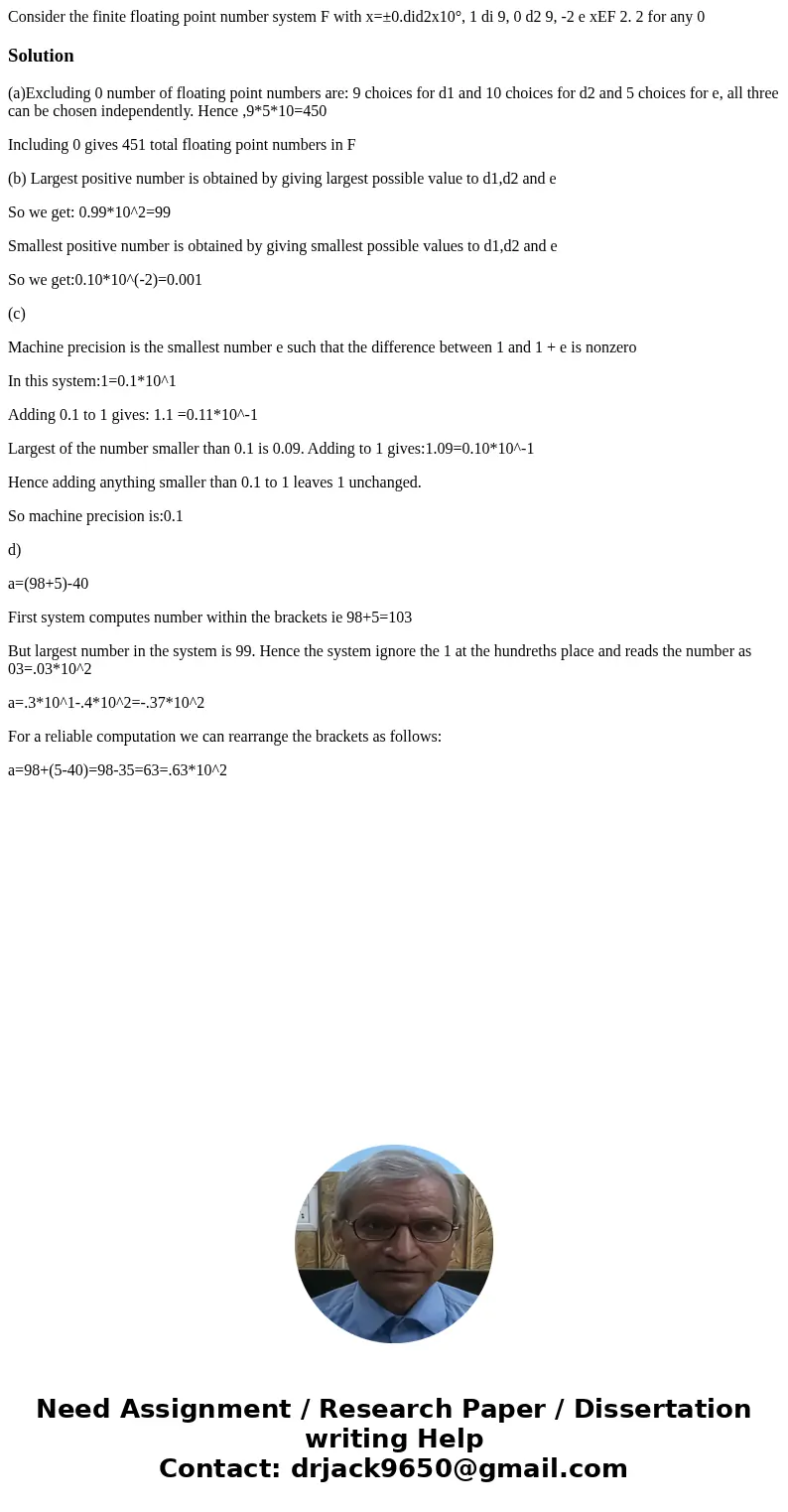Consider the finite floating point number system F with x0di
Solution
(a)Excluding 0 number of floating point numbers are: 9 choices for d1 and 10 choices for d2 and 5 choices for e, all three can be chosen independently. Hence ,9*5*10=450
Including 0 gives 451 total floating point numbers in F
(b) Largest positive number is obtained by giving largest possible value to d1,d2 and e
So we get: 0.99*10^2=99
Smallest positive number is obtained by giving smallest possible values to d1,d2 and e
So we get:0.10*10^(-2)=0.001
(c)
Machine precision is the smallest number e such that the difference between 1 and 1 + e is nonzero
In this system:1=0.1*10^1
Adding 0.1 to 1 gives: 1.1 =0.11*10^-1
Largest of the number smaller than 0.1 is 0.09. Adding to 1 gives:1.09=0.10*10^-1
Hence adding anything smaller than 0.1 to 1 leaves 1 unchanged.
So machine precision is:0.1
d)
a=(98+5)-40
First system computes number within the brackets ie 98+5=103
But largest number in the system is 99. Hence the system ignore the 1 at the hundreths place and reads the number as 03=.03*10^2
a=.3*10^1-.4*10^2=-.37*10^2
For a reliable computation we can rearrange the brackets as follows:
a=98+(5-40)=98-35=63=.63*10^2

 Homework Sourse
Homework Sourse